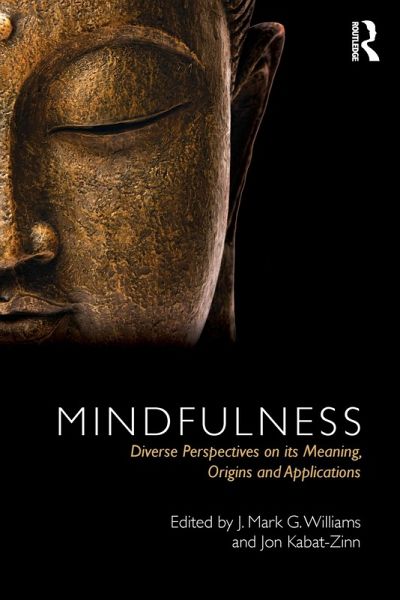
Mindfulness
Diverse Perspectives on its Meaning, Origins and Applications
Herausgeber: Williams, J. Mark; Kabat-Zinn, Jon
Versandkostenfrei!
Versandfertig in 1-2 Wochen
57,99 €
inkl. MwSt.

PAYBACK Punkte
29 °P sammeln!
Mindfulness considers the mindfulness-based approaches to medicine, psychology, neuroscience, healthcare, education, business leadership, and other major societal institutions that have become increasingly common. This book was originally published as a special issue of Contemporary Buddhism.














